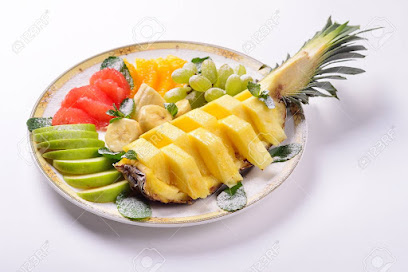
The Enigmatic Southern Red Sea Region of Eritrea
The Southern Red Sea Region of Eritrea is a captivating destination that offers a unique blend of natural beauty, cultural heritage, and historical significance. Located along the Red Sea coast, this region boasts pristine beaches, crystal-clear waters, and vibrant coral reefs, making it a paradise for underwater enthusiasts and beach lovers alike. The unspoiled coastline is dotted with charming fishing villages where visitors can experience the local way of life and savor fresh seafood delicacies. In contrast to its serene coastline, the Southern Red Sea Region is also home to dramatic landscapes, including the rugged foothills of the Danakil Depression, one of the hottest places on Earth. This area is rich in geological wonders, such as salt flats, volcanic formations, and colorful mineral deposits, offering adventurous travelers a chance to explore some of the planet's most extreme environments. The region's unique flora and fauna, including endemic species, add to its ecological significance. Cultural enthusiasts will find the Southern Red Sea Region intriguing as well, with its historical sites and ancient ruins that tell the story of Eritrea's past. The region is dotted with relics from the Ottoman and Italian colonial periods, including old fortresses and buildings that stand as silent witnesses to the area's rich history. Visitors can also engage with the local Afar and Saho communities, who maintain their traditional lifestyles and crafts, providing a glimpse into the region's cultural diversity.
Local tips in Southern Red Sea Region
- Visit during the cooler months from October to March to avoid the extreme heat.
- Bring snorkeling gear to explore the vibrant coral reefs and marine life.
- Hire a local guide to navigate the Danakil Depression safely and learn about its geological wonders.
- Respect local customs and traditions when visiting villages and interacting with the Afar and Saho communities.
- Ensure you have adequate supplies of water and food when traveling to remote areas.
The Enigmatic Southern Red Sea Region of Eritrea
The Southern Red Sea Region of Eritrea is a captivating destination that offers a unique blend of natural beauty, cultural heritage, and historical significance. Located along the Red Sea coast, this region boasts pristine beaches, crystal-clear waters, and vibrant coral reefs, making it a paradise for underwater enthusiasts and beach lovers alike. The unspoiled coastline is dotted with charming fishing villages where visitors can experience the local way of life and savor fresh seafood delicacies. In contrast to its serene coastline, the Southern Red Sea Region is also home to dramatic landscapes, including the rugged foothills of the Danakil Depression, one of the hottest places on Earth. This area is rich in geological wonders, such as salt flats, volcanic formations, and colorful mineral deposits, offering adventurous travelers a chance to explore some of the planet's most extreme environments. The region's unique flora and fauna, including endemic species, add to its ecological significance. Cultural enthusiasts will find the Southern Red Sea Region intriguing as well, with its historical sites and ancient ruins that tell the story of Eritrea's past. The region is dotted with relics from the Ottoman and Italian colonial periods, including old fortresses and buildings that stand as silent witnesses to the area's rich history. Visitors can also engage with the local Afar and Saho communities, who maintain their traditional lifestyles and crafts, providing a glimpse into the region's cultural diversity.
When is the best time to go to Southern Red Sea Region?
Unmissable attractions to see
Dahlak Marine National Park
Explore the stunning Dahlak Marine National Park, a serene haven of marine life, rich culture, and breathtaking landscapes in Eritrea's pristine waters.
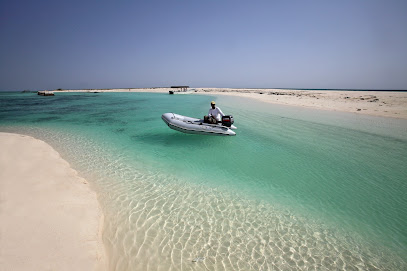
National Museum of Eritrea
Explore Eritrea's cultural heritage and history at the National Museum of Eritrea in Asmara—an essential stop for every traveler.
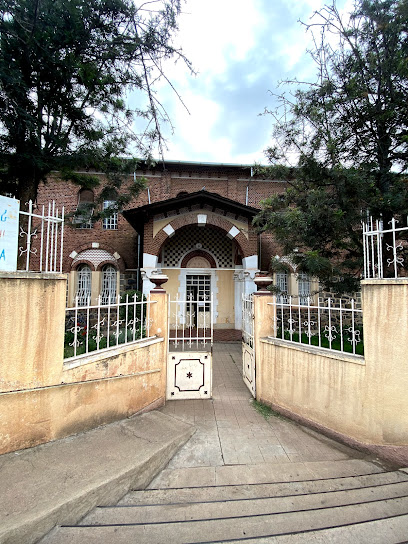
Ayaba Jazira
Experience the natural beauty and cultural richness of Ayaba Jazira, a hidden gem in Eritrea perfect for relaxation and exploration.
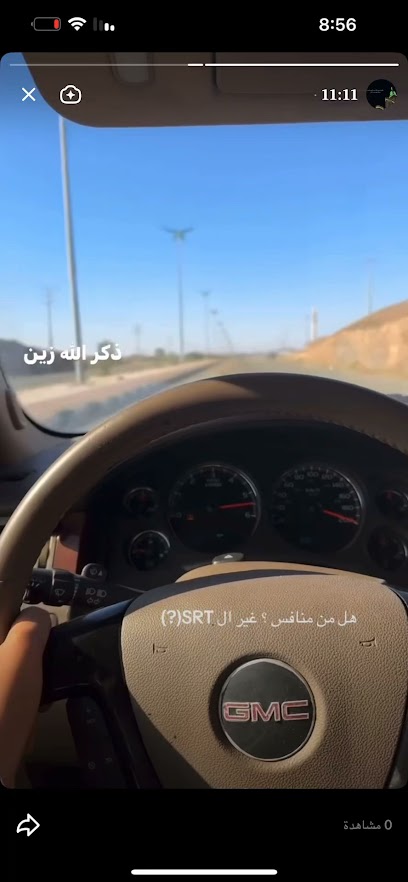
Black Water Spring
Explore the breathtaking Black Water Spring in Dalol, Ethiopia, where vibrant colors and geothermal wonders await your discovery.
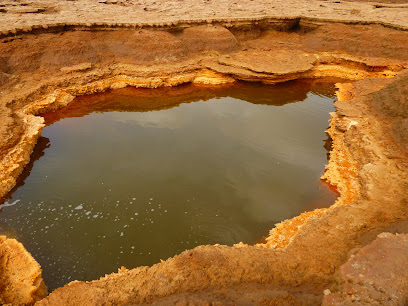
Sanahbor Gadir
Experience the captivating charm of Sanahbor Gadir in Eritrea, a cultural treasure by the Red Sea offering stunning views and authentic local experiences.
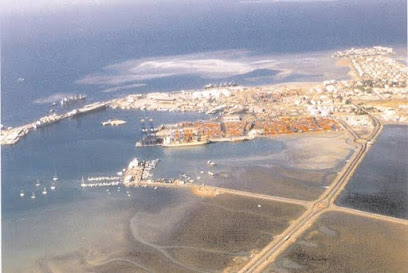
Danakil Desert
Uncover the extraordinary landscapes and rich culture of the Danakil Desert, a breathtaking destination for adventurous travelers in Ethiopia.
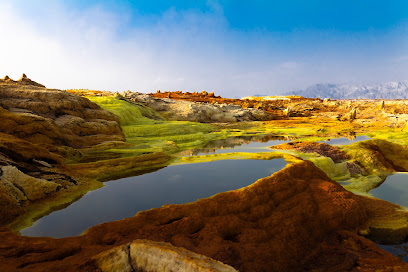
Dubbi Volcano
Discover the awe-inspiring Dubbi Volcano in Eritrea, a captivating destination for adventure seekers and nature enthusiasts alike.

Catherine Volcano
Discover the awe-inspiring Catherine Volcano in Nemegubi, Ethiopia - a natural wonder with breathtaking views and rich geological history.
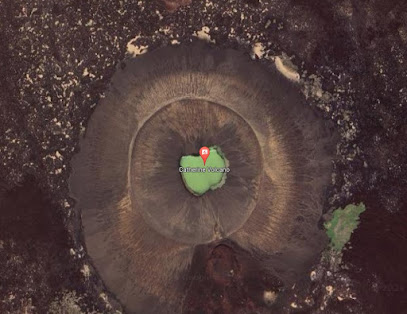
Ssv island
Explore the serene Ssv Island in Eritrea, a breathtaking park rich in biodiversity, stunning landscapes, and tranquil waters for nature enthusiasts.

Aqni kôma
Experience the unparalleled beauty of Aqni kôma, a breathtaking hiking area in Eritrea showcasing nature's splendor and adventure.

‘Idī
Explore the serene beauty of ‘Idī, a captivating bay in Eritrea offering stunning landscapes, tranquil waters, and rich cultural experiences.

Selefī Desēt
Discover the beauty of Selefī Desēt Park in Beraisole, Eritrea, a tranquil haven for nature lovers and those seeking relaxation amidst stunning landscapes.

yasin
Experience the vibrant culture and local flavors of Eritrea at Yasin, a must-visit tourist attraction in the heart of Asmara.

جزيرة المظفري
Explore the serene beauty and vibrant marine life of جزيرة المظفري in Karmu, Eritrea – a perfect escape for both relaxation and adventure.

Markets, malls and hidden boutiques
Asseb Restaurant
Experience authentic Eritrean cuisine and exceptional coffee at Asseb Restaurant in Āssab, a culinary gem on the Red Sea coast.
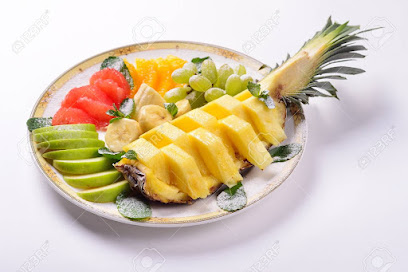
,Afar,red,sea
Experience the serene beauty and cultural richness of Afar along the stunning Red Sea coastline.

Daui rori Érythrée
Experience the authentic taste of Eritrea at Daui rori Érythrée, where quality meats and local flavors come together in Dabu.

Ali-Afar coffee
Experience the warm embrace of Eritrean culture at Ali-Afar Coffee in Deba-Sima, where every cup tells a story.

Empitura su par Muri
Discover the rich flavors of Eritrean cuisine at Empitura su par Muri, a traditional butcher shop in Muri, Eritrea, offering fresh meats and local delicacies.

Dankaliya coffee shop
Experience the rich flavors of traditional Eritrean coffee at Dankaliya Coffee Shop in Deba-Sima, a cozy atmosphere for travelers.

Allush Al Afar
Discover Allush Al Afar in Bure, Ethiopia, your trusted cell phone store for a wide range of mobiles and accessories, ensuring you stay connected.

Dankalia, afar
Explore the breathtaking landscapes and rich cultural heritage of Dankalia, Eritrea's hidden gem by the Red Sea.

Qasabad,Qafariimi,Afar
Discover the essence of Eritrean culture at Qasabad Store in Āssab, where local goods and vibrant atmosphere await every traveler.

Essential bars & hidden hideouts
Ghibabo Restaurant And Pizzeria
Discover Ghibabo Restaurant And Pizzeria in Asmara – an Italian culinary experience with gourmet pizzas, fresh pastas, and a welcoming atmosphere.
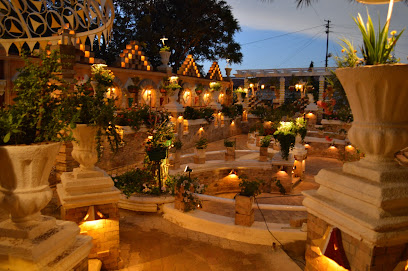
The Roof Garden
Discover the flavors of Eritrea at The Roof Garden, where exquisite cuisine meets breathtaking views in the heart of Asmara.
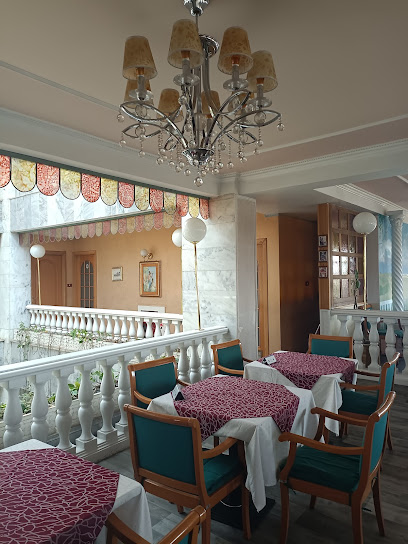
Bar Pasticceria Vittoria
Experience the best of Eritrean and Italian pastries at Bar Pasticceria Vittoria, a charming café in the heart of Asmara.
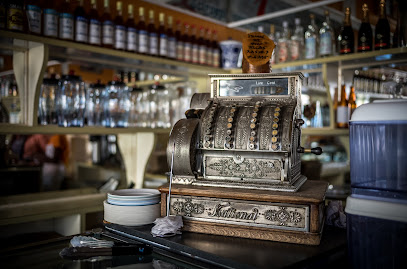
Cacata di rospo
Experience the vibrant atmosphere of Cacata di Rospo, a cozy bar in Murad, Yemen, perfect for unwinding and connecting with locals.

Bar selam ባር ሰላም ( እንዳ ሳባ)
Discover the vibrant atmosphere and local flavors at Bar Selam, a must-visit bar in Adi Kontsi, Eritrea, perfect for relaxation and cultural immersion.

Bar Zilli
Discover the vibrant flavors of Asmara at Bar Zilli, where Italian-inspired grilled dishes meet a lively bar atmosphere.
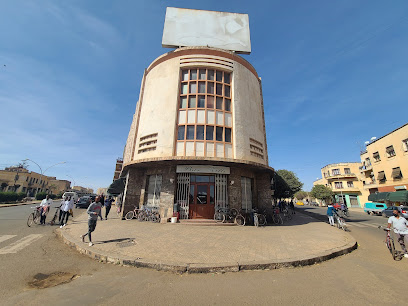
AFT bar and restaurant
Experience the vibrant nightlife of Serdo at AFT Bar and Restaurant, where local flavors and a lively atmosphere come together.
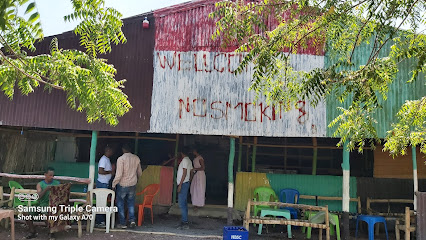
Bar Hiwnet
Discover the authentic flavors of Eritrea at Bar Hiwnet, a charming restaurant in Asmara known for its delicious traditional dishes and warm hospitality.

Hebron Bar And Restaurant
Experience authentic Eritrean flavors at Hebron Bar And Restaurant, a culinary treasure in the heart of Asmara, perfect for every food lover.
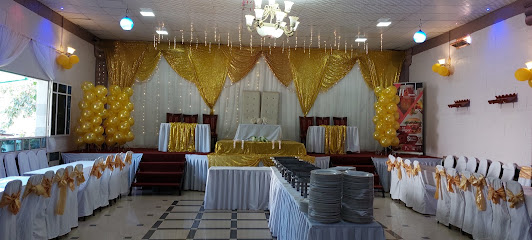
ቤት ቁርሲ ሞዴርና Modern Snack Bar
Discover authentic Eritrean cuisine at ቤት ቁርሲ ሞዴርና Modern Snack Bar, a must-visit dining experience in Asmara.
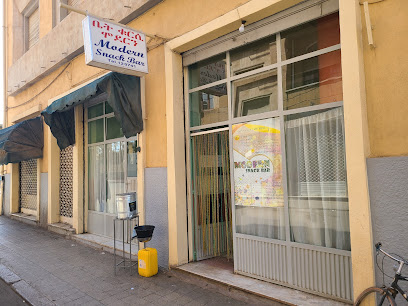
Sallam Restaurant
Experience the rich flavors of Eritrea at Sallam Restaurant, a seafood treasure in the heart of Mitsiwa, offering fresh dishes and warm hospitality.
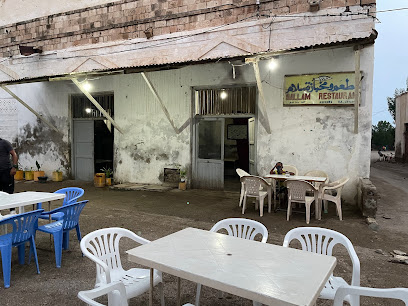
بن وبهارات البتيس
Discover the vibrant atmosphere of بن وبهارات البتيس in Hajdah, Yemen, a lively bar perfect for tasting local flavors and enjoying social interactions.
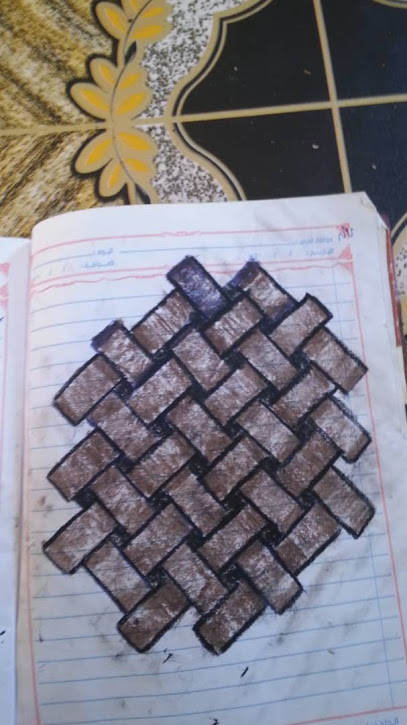
Ethiopia hotel
Experience the vibrant nightlife and local flavors at Logiya's top bar, where culture and community come together for an unforgettable evening.

Adonai’s bar
Discover the vibrant local culture at Adonai’s Bar in Dhu Bellu, Eritrea – a must-visit for an authentic taste of Eritrean hospitality.

Local Phrases about Southern Red Sea Region
-
- Helloሰላም
[selam] - Goodbyeደሓን
[dehan] - Yesእወ
[ew] - Noኣይ
[ai] - Please/You're welcomeኣስናጽብቲ
[asnashti] - Thank youእንተይ
[entay] - Excuse me/Sorryኣደናኻ
[adnekha] - How are you?ንብረትራብዕ?
[nberetraab] - Fine. And you?ብሓሰብይ. እንተይ?
[bhasibey. entay?] - Do you speak English?እንተይ እንግሊዝኛ እዩ?
[entay englizna eyu?] - I don't understandኣለይ ኣይነበር
[aley ainabir]
- Helloሰላም
-
- I'd like to see the menu, pleaseእንተዩ እቶም ኣልበምን
[entay etom albamn] - I don't eat meatእንተዩ ኣምሓራ ኣይተሽን
[entay amhara aiyteshn] - Cheers!ሰላም
[selam] - I would like to pay, pleaseእንተዩ ኣስናጽብቲ
[entay asnashti]
- I'd like to see the menu, pleaseእንተዩ እቶም ኣልበምን
-
- Help!ወጽንዕ!
[wetsne] - Go away!ሓደሽ!
[hadesh] - Call the Police!ጥበል ሓደሽ!
[tibele hadesh] - Call a doctor!ጥበል ሓደሽን ዶክተር!
[tibele hadeshn dokter] - I'm lostእንተዩ ዝተዋሕ
[entay ztewah] - I'm illእንተዩ ጎይታ
[entay goyta]
- Help!ወጽንዕ!
-
- I'd like to buy...እንተዩ ኣይደርስዎም...
[entay aiderswom...] - I'm just lookingእንተደረሰ
[entaderes] - How much is it?ኣብዚ ኣይስጉም?
[abzi aysugum?] - That's too expensiveኣብዚ ኣይግዝብሉ
[abzi aiygzeblu] - Can you lower the price?ኣብዚ ኣይስምላኽ ኣብ እዮ?
[abzi aysmlakh ab eyo?]
- I'd like to buy...እንተዩ ኣይደርስዎም...
-
- What time is it?ስለዚ ሰዓት ነይሩ?
[slezi sa'at nayru?] - It's one o'clockሰዓት ኣኣሽሩ
[sa'at a'ashru] - Half past (10)ሽም ኣኣሽሩ
[shim a'ashru] - Morningጉዕ
[gwe] - Afternoonሓርነት
[harent] - Eveningምስማዕ
[mesmae] - Yesterdayኣብዚ
[abzi] - Todayዓርቢ
[arbi] - Tomorrowቐለል
[qalel] - 1ኣኣሽሩ
[a'ashru] - 2ርብቃ
[rebka] - 3ሰሓት
[sehat] - 4ኣወሽሩ
[awashru] - 5ምስላ
[mesla] - 6ሜድራ
[medra] - 7ስምንት
[semnt] - 8ሰለስት
[slest] - 9ስባት
[sbat] - 10ሕማም
[h'mam]
- What time is it?ስለዚ ሰዓት ነይሩ?
-
- Where's a/the...?ብዝሒ እኩሎ...?
[bzi ekulo?] - What's the address?ስለዚ ኣብዚ ንውሓይኩሞ?
[slezi abzi nwehaykumo?] - Can you show me (on the map)?ኣብዚ እኩሎ ኣብ መትከል?
[abzi ekulo ab mtakel?] - When's the next (bus)?ስለዚ ማእከል እሞሓይ?
[slezi maekel emohay?] - A ticket (to ....)ትኪት (ክፈትል ...)
[ticket (kiftel ...)]
- Where's a/the...?ብዝሒ እኩሎ...?
History of Southern Red Sea Region
-
The ancient port city of Adulis, located near the coast of the Southern Red Sea Region, was an important trading hub in the Aksumite Empire. Dating back to the 1st century AD, Adulis served as a key link between the Mediterranean world and the Indian Ocean trade routes. Archaeological excavations have uncovered remnants of ancient buildings, inscriptions, and artifacts that provide insight into the city's commercial and cultural significance.
-
The Southern Red Sea Region is historically tied to the Aksumite Civilization, one of the great civilizations of the ancient world. Spanning from the 1st to the 7th century AD, the Aksumite Kingdom was known for its monumental obelisks, advanced architecture, and extensive trade networks. The region's proximity to the Red Sea facilitated maritime trade with Egypt, Greece, Rome, and India.
-
In the 16th century, the Ottoman Empire extended its influence over the Red Sea coast, including parts of the Southern Red Sea Region. The Ottomans established a presence in the region to control the strategic maritime routes and enhance their trade interests. This period saw the construction of fortresses and other infrastructure to solidify Ottoman control.
-
The late 19th and early 20th centuries marked the period of Italian colonization in Eritrea. The Southern Red Sea Region, like the rest of the country, experienced significant changes under Italian rule. Infrastructure development, such as roads and ports, was undertaken to facilitate resource extraction and military control. The Italian influence is still evident in the architecture and urban planning of the region.
-
The mid-20th century was a tumultuous period for Eritrea, including the Southern Red Sea Region, as the country fought for independence from Ethiopian rule. The region played a crucial role in the Eritrean War of Independence, which lasted from 1961 to 1991. The rugged terrain and strategic coastal locations provided advantages for the Eritrean People's Liberation Front (EPLF) in their guerrilla warfare against Ethiopian forces.
-
The Southern Red Sea Region is home to a rich tapestry of cultures and ethnic groups. The Afar people, known for their pastoralist lifestyle, are one of the prominent communities in the region. The cultural practices, traditional music, dance, and cuisine of the Afar and other ethnic groups contribute to the region's vibrant cultural heritage. Festivals and communal gatherings are integral to the social fabric of the region.
-
The Southern Red Sea Region is not only historically significant but also boasts stunning natural landscapes. The Dahlak Archipelago, a group of islands off the coast, is renowned for its pristine beaches, coral reefs, and diverse marine life. The region's unique geological features, such as volcanic formations and hot springs, attract nature enthusiasts and adventure travelers.
Southern Red Sea Region Essentials
-
Southern Red Sea Region is accessible primarily via the Asmara International Airport, located in the capital city of Asmara. From Asmara, you can take a domestic flight to the Assab Airport, situated in the Southern Red Sea Region. Alternatively, you can travel by road from Asmara to Assab, which takes approximately 10-12 hours by car or bus. The road trip offers scenic views of Eritrea's diverse landscapes.
-
Within the Southern Red Sea Region, transportation options include taxis, buses, and private car rentals. Taxis are widely available in major towns like Assab, and they offer a convenient way to navigate the area. Public buses and minibuses operate between towns and villages, providing a cost-effective means of travel. For those who prefer more flexibility, renting a car is a viable option, though it is advisable to have a local guide or driver due to challenging road conditions in some areas.
-
The official currency in Eritrea is the Eritrean Nakfa (ERN). Credit cards are not widely accepted, so it is essential to carry cash for most transactions. ATMs are scarce in the Southern Red Sea Region, so it is recommended to withdraw sufficient cash in Asmara before traveling. Some larger hotels and businesses in Assab might accept major foreign currencies like the US Dollar or Euro.
-
The Southern Red Sea Region is relatively safe for tourists, but standard safety precautions should be taken. Avoid walking alone at night in unfamiliar areas and always keep your valuables secure. While there are no specific high-crime areas targeting tourists, staying vigilant and aware of your surroundings is always advisable. The border areas near Djibouti and Ethiopia can be sensitive, so it is best to avoid these regions unless you have official permission.
-
In case of an emergency, dial 113 for fire services, 114 for police, and 115 for medical emergencies. The main hospital in the region is the Assab Hospital, which provides basic medical services. It is highly recommended to have travel insurance that covers medical emergencies and evacuation. For minor health issues, there are pharmacies in Assab where you can purchase over-the-counter medications.
-
Fashion: Do dress modestly, especially when visiting religious sites. Avoid wearing revealing clothing. Religion: Do respect local customs and traditions. Always remove your shoes when entering mosques. Public Transport: Do be respectful and give up your seat to elderly passengers. Don't eat or drink on public transport. Greetings: Do greet people with a handshake. A slight bow of the head is also a sign of respect. Eating & Drinking: Do try local delicacies and accept food offerings graciously. Don't refuse hospitality, as it is considered impolite.
-
To experience the Southern Red Sea Region like a local, visit the local markets in Assab where you can buy fresh produce and traditional Eritrean goods. Engage with locals, as they are often friendly and willing to share stories about the region's history and culture. Don't miss exploring the Dahlak Archipelago, known for its pristine beaches and excellent diving spots. For a unique cultural experience, attend traditional dance performances and local festivals that showcase the rich heritage of the region.
Nearby Cities to Southern Red Sea Region
-
Things To Do in Adi Keyh
-
Things To Do in Tadjoura
-
Things To Do in Obock
-
Things To Do in Dekemhare
-
Things To Do in Adi Quala
-
Things To Do in Ibb
-
Things To Do in Axum
-
Things To Do in Arta
-
Things To Do in Mendefera
-
Things To Do in Djibouti City
-
Things To Do in Asmara
-
Things To Do in Dikhil
-
Things To Do in Dhamar
-
Things To Do in Lalibela
-
Things To Do in Ali Sabieh





